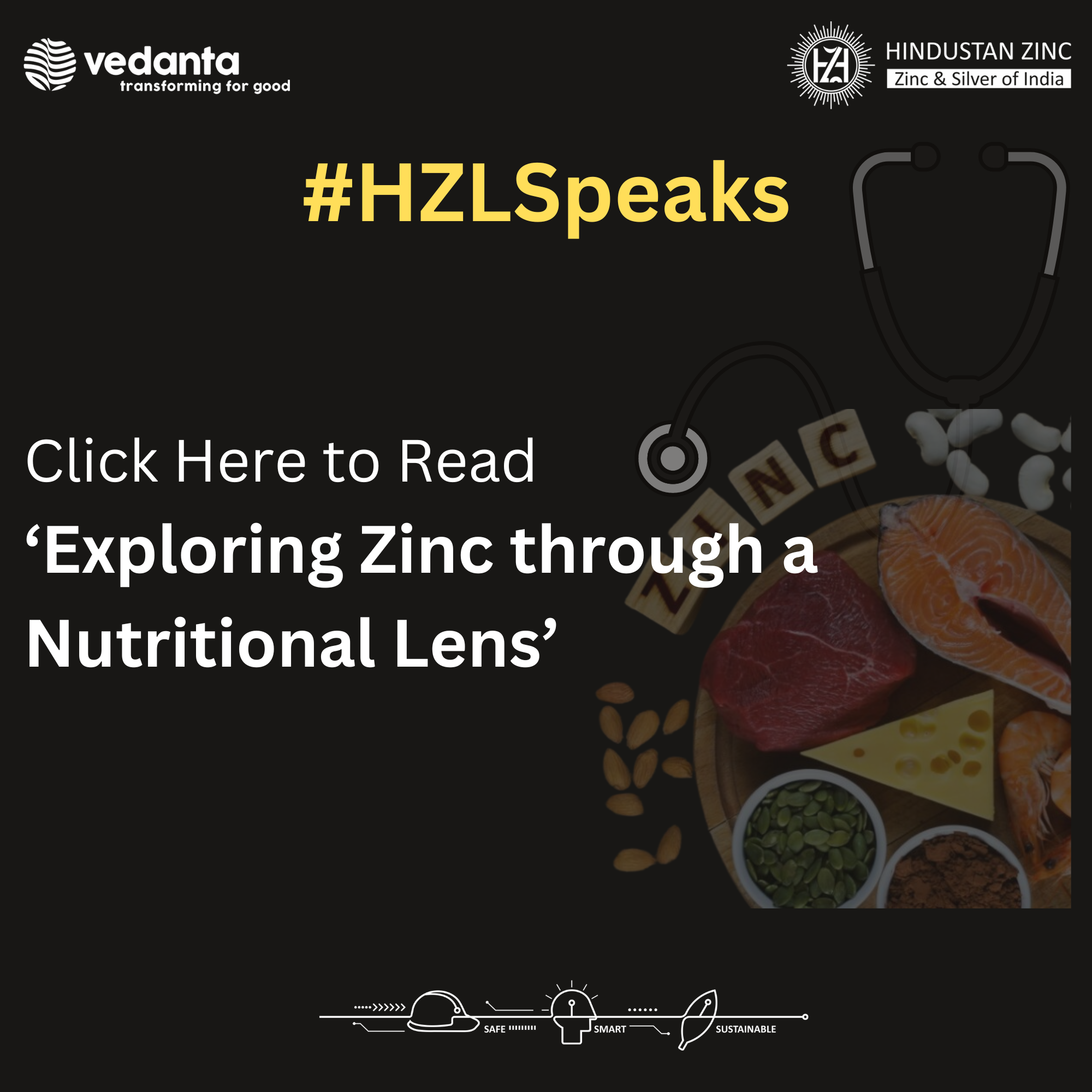
After exploring zinc’s pivotal role in shaping the nexus between industry and India’s economic trajectory, let’s now delve into its myriad benefits in the realm of nutrition.
Embracing the winter season underscores the importance of a diet rich in both low-sodium and zinc, making Hindustan Zinc, a trailblazer in weaving elemental stories that connect industry and health. As zinc continues to be a linchpin in India’s economic destiny, its health advantages—from immune support to heart health, underscores its integral role in our daily lives.
Shifting our focus from zinc’s industrial applications to its health merits, let’s highlight its advantages:
Immune Support: Zinc plays a pivotal role in maintaining a robust immune system by facilitating the development and functioning of immune cells, aiding the body in warding off infections and illnesses. Ensuring sufficient zinc intake through diet fortifies immune defences, reducing the risk of falling ill and promoting quicker recovery.
Skin Health and Wound Healing: Essential for skin health and wound healing, zinc stimulates collagen production—a vital protein for skin elasticity and wound recovery. A diet rich in zinc promotes healthy, youthful-looking skin and expedites the healing process for cuts, burns, and other injuries.
Enhancing Heart Health with Zinc:
- Reduces Cardiac Inflammation: Zinc helps alleviate inflammation in the cardiovascular system, fostering heart health.
- Lowers Oxidative Stress: Acting as an antioxidant, zinc reduces oxidative stress on the heart, preventing damage to heart cells.
- Strengthens Blood Vessels: Zinc contributes to maintaining the integrity of blood vessel walls, reducing the risk of vascular issues.
- Boosts Blood Flow: By supporting healthy blood vessels, zinc improves blood flow to the heart, diminishing the risk of heart disease.
- Lowers Cholesterol & Triglycerides: Zinc is known to lower cholesterol and triglyceride levels, crucial factors in heart health.
Note that the Recommended Dietary Allowance (RDA) for adults aged 19 and above is 11 mg a day for men and 8 mg for women. You may incorporate zinc into your diet through foods like peanuts, eggs, salmon, rice, milk, and bread.
The equilibrium between sodium and zinc in your diet significantly impacts overall health and well-being. By moderating sodium intake and ensuring sufficient zinc intake, you can champion heart health, reinforce your immune system, maintain radiant skin, and savour your meals to the fullest.
Stay tuned for the forthcoming editions of #HZLSpeaks as Hindustan Zinc takes the lead in crafting narratives around these metals, illustrating the profound impact on our daily lives.






